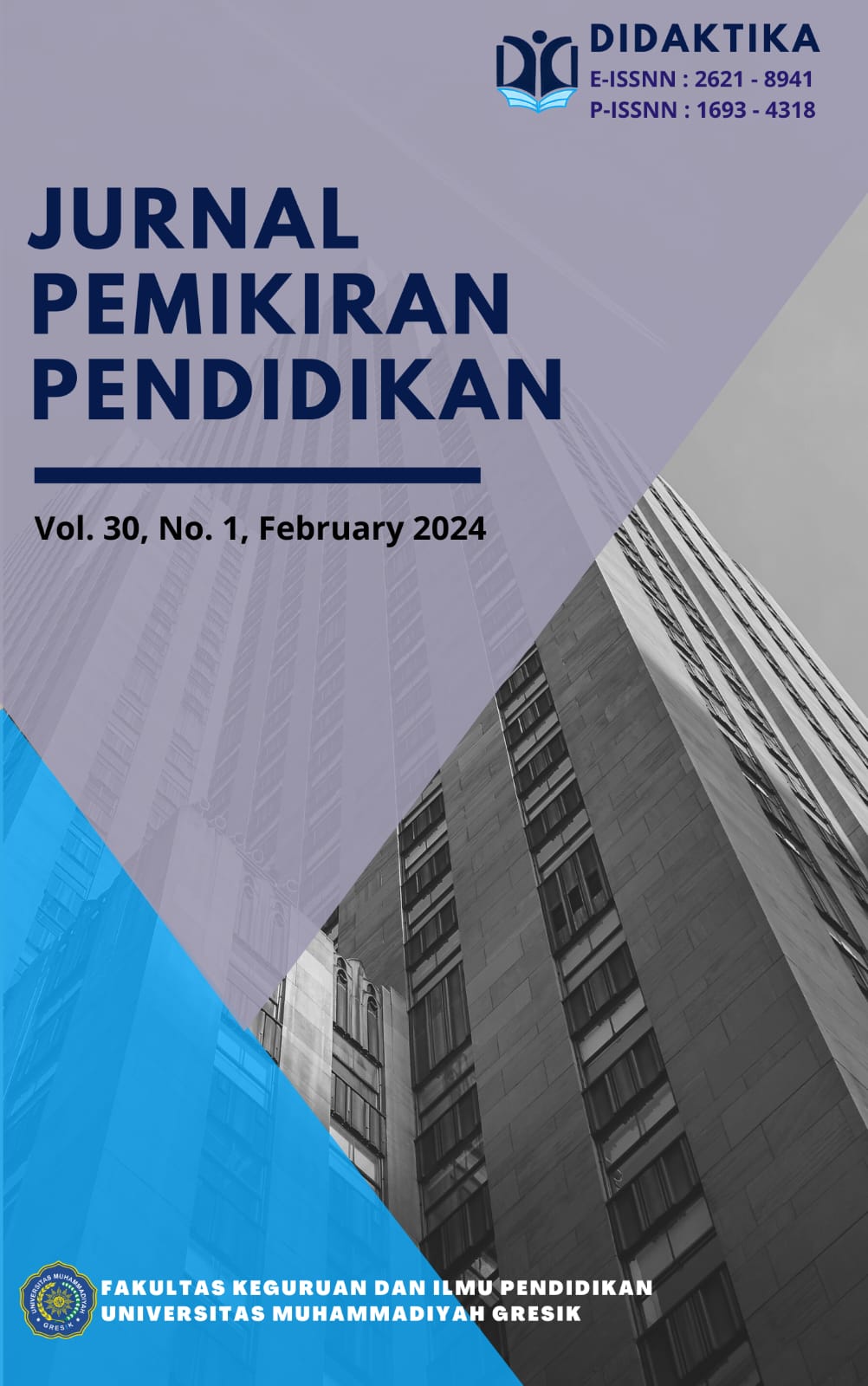Insights from Students on the Use of Asynchronous and Synchronous Approaches during Digital Learning in Thailand’s Primary Schools
DOI:
https://doi.org/10.30587/didaktika.v30i1.7387Abstract
The outbreak of Covid-19 necessitated a rapid shift in educational paradigms worldwide. With physical classrooms rendered inaccessible, educators and students turned to distance learning as the new norm. This study investigates the effectiveness of two prominent e-learning strategies: synchronous learning (facilitated by platforms like Zoom) and asynchronous learning (centered on video materials). The primary objective was to discern which approach better supported students in their educational journey while they remained confined to their homes during quarantine. The pandemic disrupted traditional educational models, prompting institutions to adapt swiftly. Distance learning emerged as a lifeline, but questions lingered about the most effective methods. This research aimed to address this gap by comparing synchronous and asynchronous learning strategies. The investigation took place in multiple schools across Thailand, where students had been navigating remote learning. A questionnaire with Likert scale questions assessed students’ perceptions as well as interviews and open-ended responses to provide deeper insights. It turns out that students favored synchronous learning due to its ease of communication. Zoom sessions allowed direct interaction with teachers and peers although both approaches effectively delivered content, but asynchronous learning lacked real-time feedback. Moreover, synchronous learning provided a structured environment, while asynchronous learning allowed flexibility.
References
Dada, E., Alkali, A., & Oyewola, D. (2019). An investigation into the effectiveness of asynchronous and synchronous e-learning mode on students’ academic performance in national open university (noun), maiduguri centre. International Journal of Modern Education and Computer Science, 11(5), 54-64. https://doi.org/10.5815/ijmecs.2019.05.06
Dahmash, N. (2021). Synchronous and asynchronous english writing classes in the efl context: students’ practices and benefits. Arab World English Journal, 12(2), 93-108. https://doi.org/10.24093/awej/vol12no2.7
Fabriz, S., Mendzheritskaya, J., & Stehle, S. (2021). Impact of synchronous and asynchronous settings of online teaching and learning in higher education on students’ learning experience during covid-19. Frontiers in Psychology, 12. https://doi.org/10.3389/fpsyg.2021.733554
Nguyen, T., Netto, C., Wilkins, J., Bröker, P., Vargas, E., Sealfon, C., … & Stein, G. (2021). Insights into students’ experiences and perceptions of remote learning methods: from the covid-19 pandemic to best practice for the future. Frontiers in Education, 6. https://doi.org/10.3389/feduc.2021.647986
Sunasee, R. (2020). Challenges of teaching organic chemistry during covid-19 pandemic at a primarily undergraduate institution. Journal of Chemical Education, 97(9), 3176-3181. https://doi.org/10.1021/acs.jchemed.0c00542
Yuyun, I. (2023). Investigating university student engagement in online learning: a case study in efl classroom. Indonesian Journal of Applied Linguistics, 12(3), 648-667. https://doi.org/10.17509/ijal.v12i3.46035
Downloads
Published
How to Cite
Issue
Section
License
License and Copyright Agreement
In submitting the manuscript to the journal, the authors certify that:
- They are authorized by their co-authors to enter into these arrangements.
- The work described has not been formally published before, except in the form of an abstract or as part of a published lecture, review, thesis, or overlay journal.
- That it is not under consideration for publication elsewhere,
- That its publication has been approved by all the author(s) and by the responsible authorities – tacitly or explicitly – of the institutes where the work has been carried out.
- They secure the right to reproduce any material that has already been published or copyrighted elsewhere.
- They agree to the following license and copyright agreement.
Copyright
Authors who publish with DIDAKTIKA: Jurnal Pemikiran Pendidikan agree to the following terms:
- Authors retain copyright and grant the journal right of first publication with the work simultaneously licensed under a Creative Commons Attribution License (CC BY-SA 4.0) that allows others to share the work with an acknowledgment of the work's authorship and initial publication in this journal.
- Authors are able to enter into separate, additional contractual arrangements for the non-exclusive distribution of the journal's published version of the work (e.g., post it to an institutional repository or publish it in a book), with an acknowledgment of its initial publication in this journal.
- Authors are permitted and encouraged to post their work online (e.g., in institutional repositories or on their website) prior to and during the submission process, as it can lead to productive exchanges, as well as earlier and greater citation of published work.
Licensing for Data Publication
Open Data and Software Publishing and Sharing
The journal strives to maximize the replicability of the research published in it. Authors are thus required to share all data, code or protocols underlying the research reported in their articles. Exceptions are permitted but have to be justified in a written public statement accompanying the article.
Datasets and software should be deposited and permanently archived inappropriate, trusted, general, or domain-specific repositories (please consult http://service.re3data.org and/or software repositories such as GitHub, GitLab, Bioinformatics.org, or equivalent). The associated persistent identifiers (e.g. DOI, or others) of the dataset(s) must be included in the data or software resources section of the article. Reference(s) to datasets and software should also be included in the reference list of the article with DOIs (where available). Where no domain-specific data repository exists, authors should deposit their datasets in a general repository such as ZENODO, Dryad, Dataverse, or others.
Small data may also be published as data files or packages supplementary to a research article, however, the authors should prefer in all cases a deposition in data repositories.











